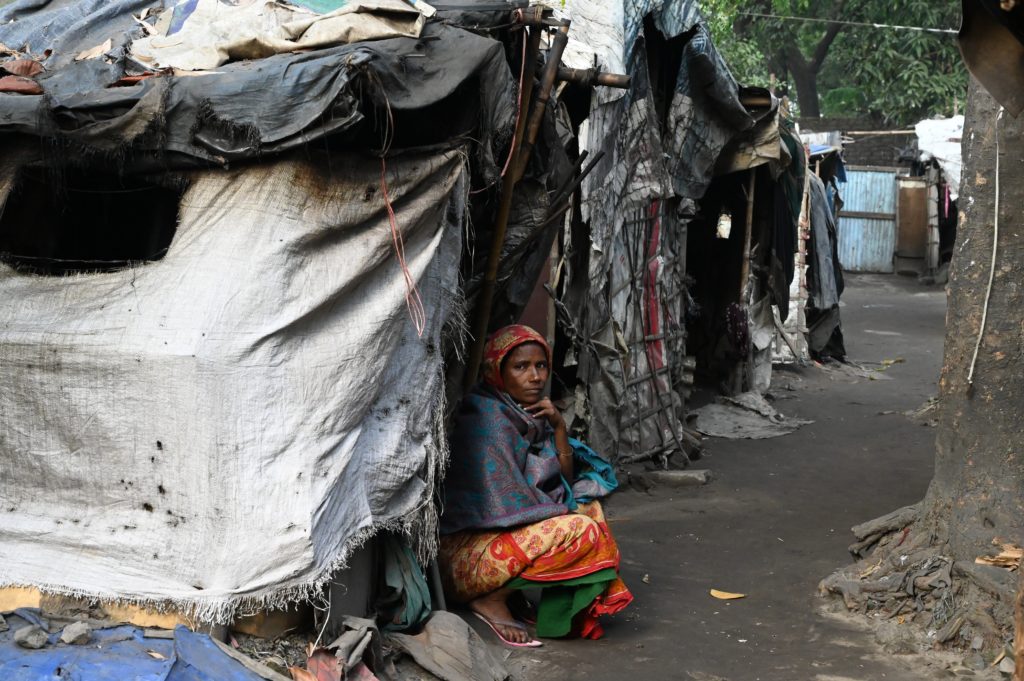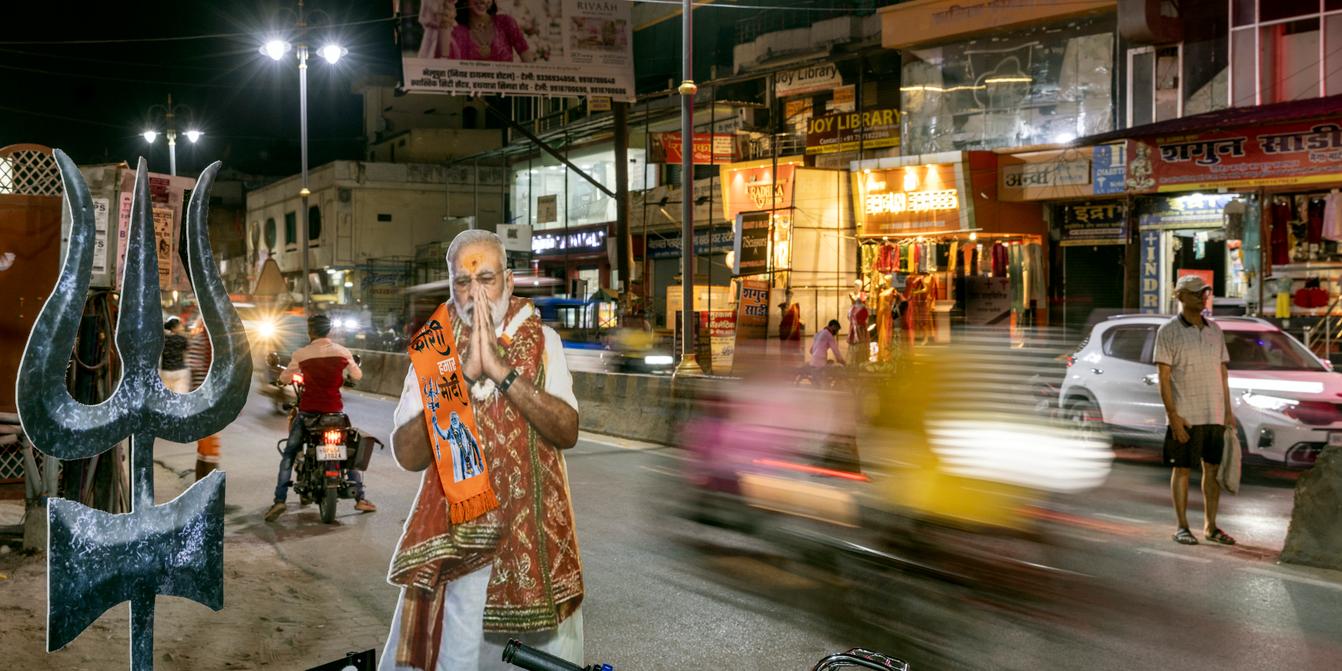Has India’s Rising Corporate Billionaires Translated To Any Good For India? Modi’s Billionaires Are Skyrocketing And Common Citizens Are Downsizing!
The surge in the number of billionaires in India during Modi's tenure raises critical questions about the broader implications for Indian society. While a select few have thrived, the benefits of this wealth creation have not trickled down to the masses. Instead, the common citizen is facing shrinking job opportunities, the erosion of public assets, and the gradual monopolization of essential services. At this juncture and as we move forward, it becomes crucial to reassess these trends and consider whether the current path truly serves the interests of all Indians or merely a privileged few.

The Cost of Billionaires Boom Under Modi
The Forbes World Billionaires list for 2024 spotlighted an interesting trend —25 new Indian billionaires were added, bringing the total to a staggering 200.
The increase hits at a broader phenomenon prevalent during Narendra Modi’s tenure—a decade marked by significant wealth accumulation among the super-rich. However, this period, celebrated by a few, has coincided with troubling developments that affect the larger populace, the simple souls, us!
As the country faced crises like the COVID-19 pandemic, reverse migration, agricultural distress, and the collapse of small and medium industries, it somehow managed to churn out more billionaires and this paradox raises pressing questions about the broader impact of these wealth gains on the common Indian citizen.

The Illusion of Prosperity Or Truth?
We live in an age where extravagant displays of wealth, like the opulent weddings of heirs to Indian business magnates, are sometimes framed as positive economic activity, with some even suggesting they contribute to job creation (do they?).
Yet, this portrayal seems to mock the everyday struggles of ordinary Indians; it exposes a growing disconnect between the elite and the masses, where the focus on wealth creation for a few has overshadowed the principles of the common good—the welfare of the entire community.
The Erosion of Public Assets and Jobs
Under Modi’s leadership, there has been a marked shift away from public sector investment, with many public assets being sold off or leased to private players.
This trend is worrying, why, because it has direct implications for job creation, particularly in government and public sector roles.
As government jobs decline and are increasingly outsourced to the private sector, a palpable sense of disenchantment has set in among the people.
The link between the rise in billionaires and the shrinking of government jobs is becoming increasingly apparent, as the public sector—once a significant source of stable employment—is gradually being dismantled.
The Disillusionment of the Poor
In various parts of India, particularly in states like Uttar Pradesh, the once-upon admiration vs disenchantment is visible.
The perception that the government is reducing job opportunities while favouring private sector growth has led to electoral losses for the BJP.
The distribution of free rations during the pandemic, while helpful in the short term, is seen by many as a distraction from the broader issue—the systematic dismantling of structures meant to safeguard the future of the poor.
This sentiment was echoed in a letter to the Chief Minister of Uttar Pradesh by a Minister from Apna Dal (Soneylal), accentuating the shrinking government jobs and the alleged bias in filling reserved posts.
)
The Neglect of National Assets
One of the most glaring examples of this neglect is the Indian Railways. Once a prized portfolio in the Union Cabinet, the Railways have seen a decline in focus and investment under the current regime.
The abolition of the separate Railway Budget in 2017, a tradition that had lasted 92 years, symbolized a significant shift in priorities.
The current Railway Minister, Ashwini Vaishnaw, with his background in private business and public-private partnerships, reflects this new orientation.
Under Vaishnaw’s watch, the Railways seem to be increasingly neglected, with a notable rise in train accidents—seven in 2024 alone.
The emphasis on high-cost, high-profile projects like the bullet train between Ahmedabad and Mumbai contrasts sharply with the declining safety and reliability of regular train services, which millions of ordinary Indians rely on daily.
The Creation of Monopolies And Billionaires
The rise of monopolistic practices in various sectors further aggravates the situation.
The acquisition of telecast rights for the Olympics by Reliance-owned Jio, for example, means that it is no longer possible to watch the games on Doordarshan, the national TV channel.
This shift reflects a broader trend where access to public goods and services is increasingly being restricted or made more expensive, further alienating the common citizen.
The Growing Public Health Paradox
As India’s wealthiest continue to grow richer, the public health sector tells a different story.
While corporate giants like Jio are seeing their subscriber numbers soar, the allocation for public health in the national budget has seen a decline; From 2.3% of GDP in 2019-20 to just 1.9% in 2024-25, this reduction stresses the shifting priorities of the current administration.
Despite the word “health” appearing four times in the budget speech, the focus on actual healthcare investment has clearly diminished which contrasts sharply with the government’s attention to sectors like telecom, where private capital thrives at the expense of public welfare.

The Unprecedented Union of Big Capital and Hindutva
The evolution of the BJP’s funding sources offers a window into the changing dynamics of Indian politics.
For example, pre-Modi, the party primarily relied on small donations from shopkeepers and small businesses; however, since the rise of Modi and his predecessor Vajpayee, the BJP has increasingly aligned itself with big corporate donors (electoral bonds).
This shift has created an unprecedented union of big capital with Hindutva, fundamentally altering the political arena itself and the numbers reveal the extent of this transformation.
The 2024 election campaign run by Modi was the most expensive in Indian history, reflecting not just the party’s financial clout but also its deep connections with corporate power.
The BJP’s wealth has grown substantially, a fact evident from the party’s own income tax statements submitted to the Election Commission.
This financial muscle, combined with the “Modi method” of leveraging state agencies to suppress opposition, has left other political parties financially crippled.
The Rising Resistance
The 2024 election marked a turning point despite the BJP’s financial dominance the party’s efforts, though massive in scale, fell short of expectations.
The voices of young, first-time MPs in Parliament today echo the growing discontent with the status quo. Their speeches increasingly focus on protecting the rights of people from corporate exploitation and political corruption.
The shift signals a renewed emphasis on social justice, with caste once again becoming a central issue.
Let us understand this, the alliance between big corporate oligarchies and Hindutva forces was predicated on the idea that identity politics would distract people from their economic realities and this strategy has held up so far, but cracks are beginning to show.
More and more citizens are recognizing the cronyism that is eroding the nation’s foundations.

The Last Bit, A Nation at a Crossroads
India stands at a critical juncture.
The decade of Modi has seen a surge in billionaires and corporate wealth, but this has come at the cost of public welfare and democratic integrity.
As the government continues to prioritise private capital over public health and welfare, the gap between the rich and the poor continues to widen.
The marriage of big capital and Hindutva, while powerful, is increasingly being challenged by those who see through the veneer of prosperity to the underlying injustices.
The future of India will depend on whether this challenge can be transformed into a movement that truly serves the interests of all its citizens, not just a privileged few.




